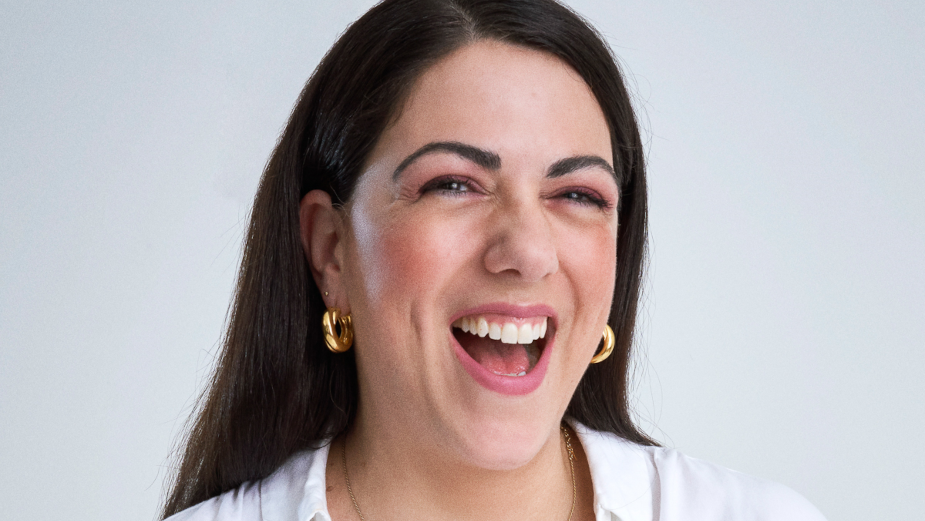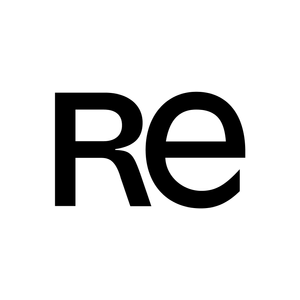
Planning for the Best: Why Less Is More with Rana Brightman

Rana has been working with brands for nearly 20 years, starting out in the world of consumer insights and establishing herself as a strategy leader at the likes of Wolff Olins, Siegel+Gale and currently at Re as executive strategy director. She has a wealth of experience from many sectors and geographies, be it early stage start-ups looking to scale or well-established corporations searching to shake things up. Rana immerses herself in every challenge – engaging leaders and stakeholders on the journey and leading teams in developing rich and authentic strategies that connect business ambition to brand experience.
LBB> What do you think is the difference between a strategist and a planner? Is there one?
Rana> When I started out my career, I really wanted to be a planner. Junior planners were few and far between, but I was advised early on that all great planners have honed their understanding of the consumer. So that’s why I started out as a qually (researcher). When I finally landed a strategy role it wasn’t as a planner or strategist but consultant. In brand consultancies, we’ve always positioned strategists that way. Since then, most agencies across the brand, marketing, comms value chain have shifted to call their thinkers strategists. I guess it’s descriptive of what we do and media agnostic. At the end of the day, it’s about asking the right questions, identifying the problem, and looking at ways to solve it creatively.
LBB> And which description do you think suits the way you work best?
Rana> I have always thrived on working in a team, even if at times it’s the sole cause of stress in the workplace because you rely on others (and yourself) to get to a successful outcome. But this team-led approach is also because I don’t believe brands are built in isolation. I love to hear other perspectives and without a doubt diversity of thought makes for better outcomes and brands.
LBB> What part of your job/the strategic process do you enjoy the most?
Rana> All of it. The beauty of my job is that no two days are the same. The strategic process may have some familiar steps but every client and brief is different. It may feel comfortable when you’ve worked with a client in a particular category, say financial services. The next financial service client you meet, you’re like 'Great, I know this space.' but in truth it’s the sectors and industries that are an unknown to me that I enjoy the most.
Given my background in consumer insight, I’m a purist when it comes to doing the research and uncovering truths and shattering misconceptions. I may have a hunch about how the strategic direction of a brand might evolve but I prefer to reserve judgement (unless asked by the client) to see how my own bias is blown wide open by what I learn from the business, the stakeholders, their audiences, the wider category, and the macro-context the brand is operating in. Aside from becoming an expert in their world I also enjoy articulating their brand story in ways that excite and inspire clients. There’s nothing like a great story told simply where they say, “Yes. Thank you. You’ve nailed it.” Then working with clients to help bring that same level of excitement and enthusiasm to their colleagues and the wider business, isn’t easy but when successful it makes what I do so worthwhile. It’s when I realise, we’ve made a difference. They know who they are, why they matter and how they’re going to make a difference.
LBB> What strategic maxims, frameworks or principles do you find yourself going back to over and over again? Why are they so useful?
Rana> There are tons of houses, onions and keys that people use when it comes to building a brand strategy. What matters most is what the client needs. One size doesn’t fit all so any of these frameworks are helpful, but it should be based on the client need. If anything, I’m a firm believer that simplicity matters. Less is more. Layers upon layers of words don’t make strategy better but worse. Focus is critical for any brand. Be it purpose-led or clarity of positioning, whatever approach is taken the story that explains it needs to be simple to have impact.
LBB> What sort of creatives do you like to work with? As a strategist, what do you want them to do with the information you give them?
Rana> I like to work with anyone who’s up for collaborating when it comes to creating brands and solutions. I always hope my creative partners are open to bouncing off ideas with me and working in tandem on the challenge. Diversity of thought makes for better brands and that means being open to bringing other perspectives in. What I expect from creatives is to challenge what I tell them with the view of strengthening the strategic approach and to better understand how the creative outcome will be fit for purpose and meaningful for the client and their audiences.
LBB> There’s a negative stereotype about strategy being used to validate creative ideas, rather than as a resource to inform them and make sure they’re effective. How do you make sure the agency gets this the right way round?
Rana> Maybe in some agencies it works that way but when it comes to how brand strategy, design and experience firms work, it’s certainly not the case. This isn’t about developing a campaign to drive short term sales; we’re talking about finding the compelling truth of a business or organisation, identifying the ways which we can design the brand to connect with colleagues, customers, and culture, articulating the story, developing the system, and building the brand experience that brings their brand to life. Ensuring you have a solid strategic foundation is essential. Any business that doesn’t runs the risk of creating work that becomes meaningless or irrelevant sooner than it should.
LBB> What have you found to be the most important consideration in recruiting and nurturing strategic talent? And how has Covid changed the way you think about this?
Rana> Everyone starts out as a junior. I think a lot of senior leaders in the business forget this. I recall it happening to me when I was a newbie strategist. Hungry to show my worth, passionate about the ideas I had but was often told to slow down, be more patient, bide my time and basically earn my stripes. Just because it takes someone 15 to 20 years to get to the top of their game doesn’t mean the same applies to everyone. We’re all individuals and we all have different ambitions we’re striving to achieve. We shouldn't forget our own experiences as they’re valuable to those learning their way but we can also help those in our teams forge their own path and become their own style of strategist. That said, I think any decent strategist shouldn’t look to cut corners. You need to do your time on the basics. Understanding and challenging the brief, being razor sharp on the analysis to deepen your insight capabilities which then gives any idea or solution you come up with the grounding it needs to fly.
Before the pandemic good people were hard to find. Now it’s even harder. Expectations are high and as employers we must work a lot harder to attract, nurture and retain talent in ways that ensures they’re growing in the best way for them and the business. It’s not easy but arguably by being more purpose-led in what we do, providing both flexibility and meaning to talent and giving them opportunities to thrive should mean happy strategists and better thinking. The world has changed, and we as agencies and consultants need to adapt to keep the best brains in the business.
LBB> What advice would you give to anyone considering a career as a strategist/planner?
Rana> Be clear on why you want to move into this discipline. If it’s because you’re curious about the world and want to help solve problems, then absolutely get involved. Don’t take no for an answer and don’t be put down by others saying you can’t. Make sure you have a point of view on all things business, brand, and communications. And if there are other topics that fascinate you then keep feeding those curiosities and sharpen your perspective on those areas too. However way you go about doing it make sure it pushes you out of your comfort zone. If you’re finding something too easy it’s most likely because you’re not trying hard enough but that said, make sure you have fun too. When you enjoy what you do it makes all the difference to the outcome. By expressing yourself in your work it helps better connect with your clients and makes the brands you build all the more human.













